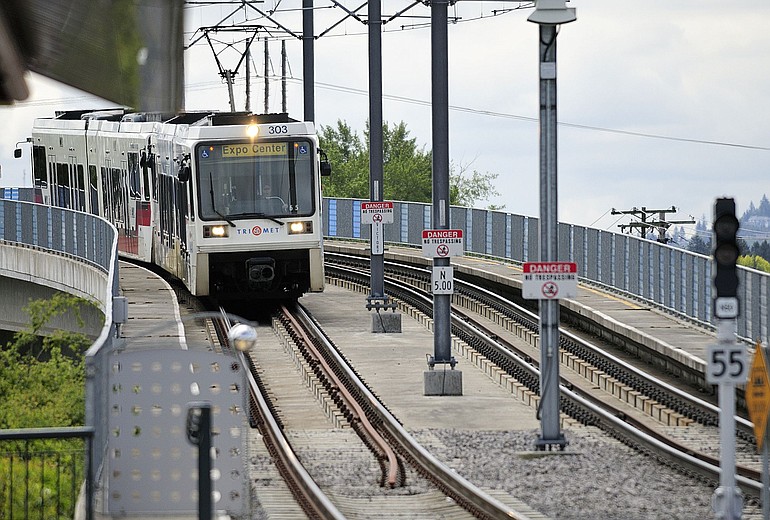The future of public transit in Clark County will come down to two distinct ballot measures next year, C-Tran’s board of directors decided Tuesday.
The board overrode the objection of Vancouver Mayor Tim Leavitt and Councilor Jeanne Harris, who argued that voters should be asked to approve a single ballot measure that preserves and expands existing C-Tran bus service while also providing money to operate light rail.
“It’s going to the voters,” county Commissioner Steve Stuart said afterward. “There will be a clear vote on light rail.”
Leavitt concurred.
“This is it,” he said.
Defeat of the light-rail measure would throw a monkey wrench into the $3.6 billion Columbia River Crossing project. Light rail on a new I-5 bridge is a requirement for a large chunk of federal and state money.
Just a day before, a majority of the Vancouver City Council had pressed for the city’s three representatives — Leavitt, Harris and councilor Jeanne Stewart — to exercise their ability to form a bloc veto against two ballot measures supported by the majority of C-Tran’s nine-member board. But Stewart made it clear that she wasn’t going to go along with Leavitt and Harris, saying she worried that a voter backlash against light rail could force the transit agency to make draconian cuts in basic bus service.
Leavitt on Monday had vowed to replace Stewart on the C-Tran board with Councilor Larry Smith.
By Tuesday, however, that gambit flickered out when it became apparent that C-Tran’s bylaws didn’t allow Stewart to be summarily swept off the board against her will. Stewart then voted with six other C-Tran board members to begin the process of formulating two ballot measures rather than just one.
The board still needs to approve a separate resolution next year formally scheduling the election, which provides another opportunity for the city to block it — especially if the city council replaces Stewart on the C-Tran board.
But Leavitt indicated a bloc veto is unlikely.
“Our city council will certainly evaluate our options,” he said in an interview. “Personally, I will look at what progress has been made and whether or not it’s productive for the city council to take an opposing position.”
As it stands, two ballot measures will be submitted to voters in C-Tran’s service district: One will ask voters to bump the sales tax by two-tenths of 1 percent to preserve existing bus service, add some new routes and shore up C-Van service for riders with disabilities. The other measure will ask for an additional one-tenth of 1 percent to operate light rail in downtown Vancouver and build a new bus-rapid transit line in dedicated lanes along Fourth Plain Boulevard.
The light rail line would be constructed with the proposed Columbia River Crossing.
Leavitt suggested it would be possible for C-Tran to come back the following year and form a high-capacity transit sub-district targeting Vancouver-area voters who may be more likely to support light rail.
Under state law, a separate vote on high-capacity transit requires C-Tran to go through a somewhat more complicated process that includes an expert review panel and consulting team. C-Tran officials estimated the process would add about $500,000 in costs; board members vowed to press the Legislature for the state to pick up that tab.
“I, frankly, am not entirely sure that our public understands that it’s going to incur a half-million dollars in planning costs just to prepare for that ballot measure,” Leavitt argued. “I think we need to allow a little more time for feedback.”
County commissioner Tom Mielke, a longtime critic of light rail and the overall Columbia River Crossing project, said a separate vote provides the clearest choice.
“I think the public knows very well what’s taking place here,” he said.



